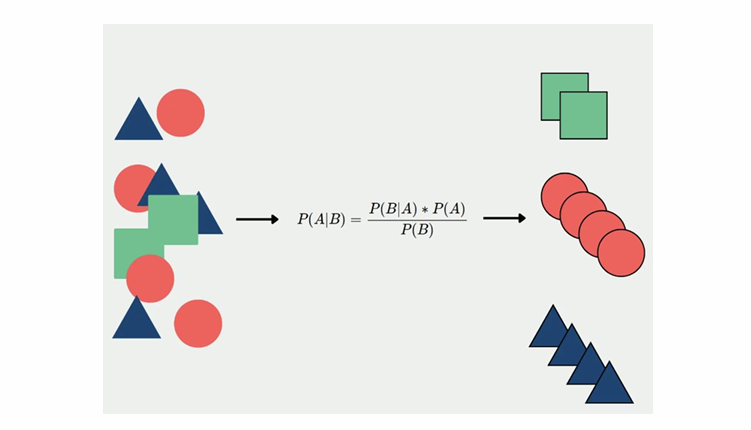Develop a Microservice to Import Users from External Application to our System Using Spring Boot
- realcode4you
- Dec 5, 2022
- 3 min read
We are also providing Data Science Assignment Help, Homework help and Project Help for our domestic client. Realcode4you.com is group of PHD researchers and Masters that can help you to do your data science projects.
Here you get complete code with full explanation without any plagiarism issues.
Below will the list of steps.
1. Admin will upload the file
2. Validation should run to verify if the file valid or not
- File should not be empty
- Extension should be .csv only
- File should have these headers "First_Name", "Last_Name", "Email",
"Phone_Number"
Once the validation will be completed, we will send 201 as status code in response OR else we will send 400 as status code with error message
Below list of error message
"FILE_EMPTY": "File should not be empty"
"EXTENSION_INVALID": "File extension should be .csv only"
"HEADERS_NOT_AVAILABLE": Either "First_Name OR Last_Name" And "Email OR Phone_Number" should be available
3. Once validated place the file in this location BASE_PATH/user_import/ "BASE_PATH" can be any path on your system and insert the file details in user_import_task_audit table with "PENDING" status.
Also update the total no users need to be imported.
4. Write a scheduler which will pick the files from the audit table whose status is "PENDING"
5. Traverse through the list of user import tasks and start reading of files one by one
6. For the read records start preparing user objects
7. Send this user objects to kafka producer
8. Listen the user objects and perform necessary validations (such as for email/phone number) and create user entry into the table
9. Update the audit table status as per sequence diagram
Technical Specifications
Build Tool: Maven
Language: Java
Framework: Spring boot, kafka
Database: Postgres
API Testing: Postman
Topic Name: event.user.import
Database Name: external_data_import
Project Name: ExternalDataImport
Sample Csv File Structure
"First_Name", "Last_Name", "Email", "Phone_Number"
“Manoj”, “Dubey”, manoj@xyz.com, “1234567890”
“Raj”, “Singhania”, “raj@xyz.com”, “1234567809”
Sequence Diagram

Scheduler

ER Diagram

ENTITY
entity UserImportTask {
id Long required,
fileName String required,
filePath String required,
createdAt TimeStamp required,
createdBy Long required
}
entity UserImportTaskAudit {
id Long required,
userImportTaskId Long required,
totalNumberOfUsers Long required,
taskStatus TaskStatus required
createdAt TimeStamp required,
createdBy Long required,
updatedAt TimeStamp,
updatedBy Long
}
entity User {
id Long required,
firstName String,
lastName String,
email String,
phoneNumber String,
password Secret required,
createdAt TimesStamp required,
createdBy Long required
}
enum TaskStatus {
PENDING, IN_PROGRESS, ERROR, COMPLETED, COMPLETED_WITH_ERROR
}
relationship OneToOne {
UserImportTask{region} to UserImportTaskAudit
}
ENDPOINTS
host: Server_host_name
Create User Import Task
Http Method: POST
Endpoint: host/upload
Payload:
file Multipart
Request Body String data
{
“fileName”: “Name of file”;
“uploadedBy”: “Id who uploaded the file any random value can be 1L”
}
Response:
Success : 201
{
“id”: 1L,
“fileName”: “user.csv”,
“audit”: {
“id”:1L,
“totalNumberOfRecords”: 20L,
“taskStatus”: PENDING
}
}
400 BAD_REQUEST
FETCH USER IMPORT TASK LIST
Http Method: GET
Endpoint: host/tasks
Payload:
Response :
200
{[
{
“id”: 1L,
“fileName”: “user.csv”,
“audit”: {
“id”:1L,
“totalNumberOfRecords”: 20L,
“taskStatus”: PENDING
}
}
]
}
FETCH USERS
Http Method: GET
Endpoint: host/users
Response:
Return paginated list of users
{
[
“id”: 1L,
“firstName”:”Manoj”,
“lastName”:”Dubey”,
“email”:manoj@xyz.com,
“phoneNumber”:”1234567890”
]
}
PS: Resolve SONAR issue and code coverage should be 80% at least
*OpenCsv library can be used for file reading but choice depends/ try to use java 8/11 features where possible
* Try to use JPA wherever possible instead of native queries
* Add common exception handler
* Implement logging whenever necessary
* Swagger Configuration
* Actuator enablement for health endpoints
Good To Have
Suggestive search
Http Method: GET
Endpoint: host/users/{searchString}
Response:
Return paginated list of users
{
[
“id”: 1L,
“firstName”:”Manoj”,
“lastName”:”Dubey”,
“email”:manoj@xyz.com,
“phoneNumber”:”1234567890”
]
}
*If possible try to use mapstruct library for mapping data from dto to entity and vice versa
Pre-Requisites
- Any docker solution should be installed for e.g. Docker Desktop, rancha desktop etc.
- For kafka use docker containers
- All necessary softwares such as IDE, Java, Maven, Database etc. should be installed
To get solution of above problem or need any help related to Java Spring Boot then you can send your assignment request at:
realcode4you@gmail.com



Comments